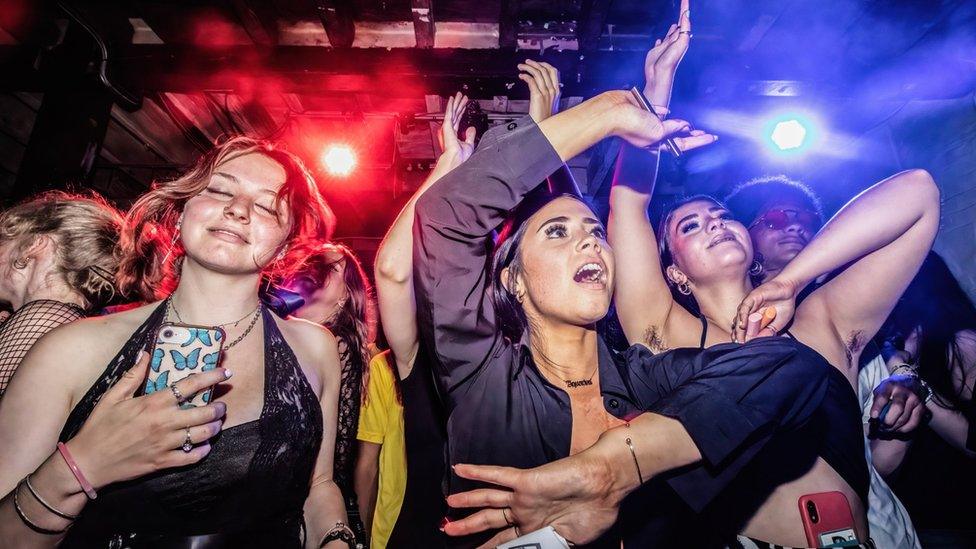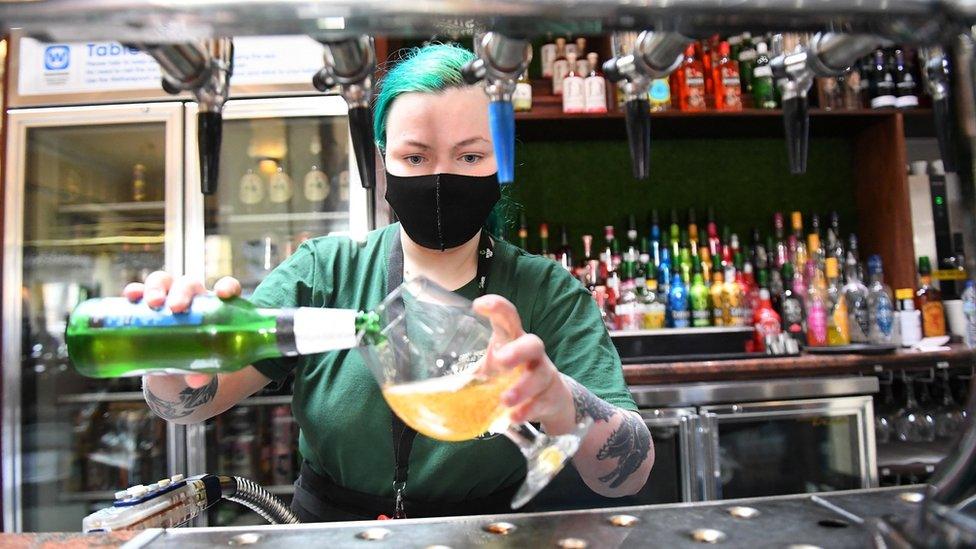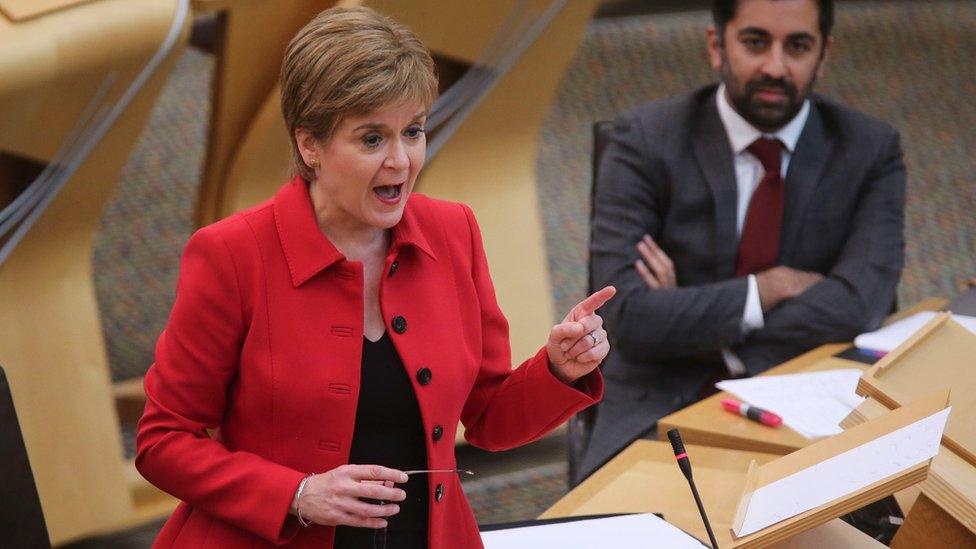Covid in Scotland: Legal challenge planned over vaccine passports
- Published

A group representing nightclubs is to launch a legal challenge to the Scottish government's plans for vaccine passports.
From October, people will need proof they have had two doses of vaccine to enter certain venues and large events.
First Minister Nicola Sturgeon said the scheme would help reduce transmission of the virus and keep clubs open.
But the Night Time Industries Association Scotland (NTIA) said there were "serious flaws" with the plans.
The group has instructed its lawyers to commence legal proceedings against the Scottish government.
It is requesting a court order to suspend the launch of the vaccine passport scheme until its case can be heard.
From the start of October, everyone over the age of 18 will need a vaccine certificate to gain entry to a nightclub, an unseated indoor event with more than 500 people, an unseated outdoor event with more than 4,000 people, or any event with more than 10,000 people in attendance.
The government has drawn up a definition of a nightclub for use with the scheme. This is described as a venue which is open between midnight and 05:00, serves alcohol, and which has a designated area for dancing and provides live or recorded music for this purpose.
Ms Sturgeon called for venues to use "common sense" over the scheme, saying: "A pragmatic approach will be encouraged, so that businesses can make sensible judgements."
However, industry groups have voiced concerns that the definition could also cover a range of other hospitality venues, including bars, pubs and hotel function rooms.

The Scottish Chambers of Commerce said "the practical application of what is being asked is not workable in the timelines being proposed".
Aberdeen nightclub owner Gavin Stevenson - a spokesman for the NTIA - told BBC Radio Scotland that the definition "includes about 2,000 pubs and bars across Scotland in addition to the 100 nightclubs that are actual nightclubs".
The NITA confirmed on Wednesday morning that it would launch a legal challenge against the scheme.
A statement from the group said "deep-rooted" problems with the scheme could have been averted had the government engaged with industry groups sooner.
And it said the scheme as proposed was "neither proportionate, nor represents the lowest level of intervention possible to achieve the public health imperative, and it is therefore likely to be unlawful".
Detailed guidance for how the scheme will operate in practice is to be published by the government in due course.

First Minister Nicola Sturgeon said the scheme was a "proportionate measure"
On Tuesday, Ms Sturgeon told MSPs that ministers were "working closely with business on the definitions that will apply, in order that we hear its concerns and can address them as far as possible".
The first minister also said the scheme was "a reasonable thing to do".
She said: "We think that their introduction is a proportionate measure ahead of the winter period to try to help us to get transmission down and keep it down, to drive up even further the already high vaccination uptake rates, and to do all that while keeping businesses such as nightclubs and large events open for business rather than having them face again this winter the risk of closure that they faced last winter."
Opposition parties at Holyrood voted against the vaccine passport scheme, but saw it passed by MSPs from the the SNP-Green administration.
Scottish Lib Dem leader Alex Cole-Hamilton said it was "no wonder the night time industry is in uproar", adding: "Hopefully this legal action will turn out to be last orders for this illiberal Covid ID card scheme."

